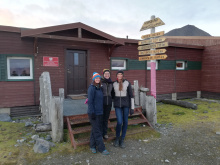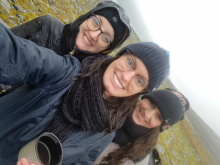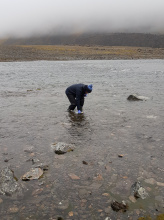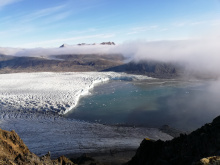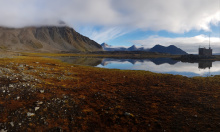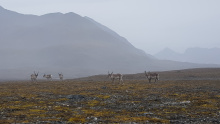Date added: 2020-09-23
Beyond the Arctic Circle - polar expedition of scientists
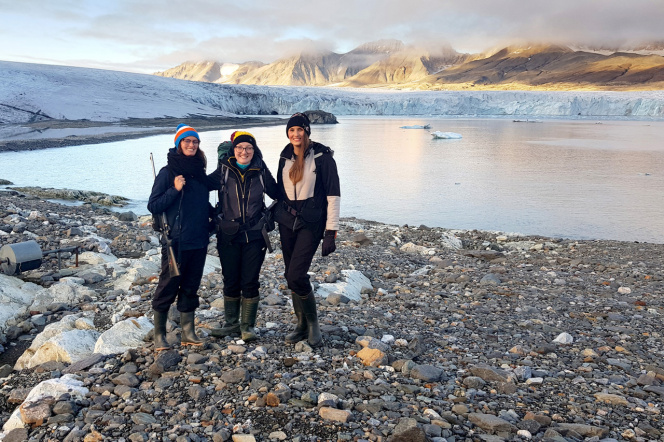
PhD, Eng. Klaudia Kosek and PhD, Eng. Małgorzata Szopińska from the Faculty of Civil and Environmental Engineering and MSc., Eng. Joanna Potapowicz from the Faculty of Chemistry participated in the 43rd Polar Expedition of the Institute of Geophysics, Polish Academy of Sciences. The scientific expedition was part of the research program included in the Preludium grant project (No. 2017/25 / N / NZ9 / 01506), financed by the National Science Center, entitled ‘Determination of nutrients, which are the basic factor enabling the growth of bacteriocenosis in the Arctic river basin of south-west Spitsbergen’, headed by PhD Klaudia Kosek. The expedition took place between 24 August – 17 September.
Preparations for the expedition started long before our departure for Spitsbergen - the largest island of the Svalbard Archipelago. One of the most important duties was to obtain permits from the Governor of the Svalbard Archipelago to conduct research in the area of the nature reserve - Hornsund Fjord. In addition, it was necessary to maintain the highest standard of field work, which was related to the careful selection of the methodology of collecting and preserving the research material and the purchase of appropriate quality reagents.
– After fulfilling all obligations, on 24 August this year at 4 p.m. we set sail on the training and research vessel ‘Horyzont II’, belonging to the Gdynia Maritime University, on our way to Spitsbergen - says PhD, Eng. Klaudia Kosek.
– After a 10-day journey through the waters of five seas (the Baltic Sea, the Norwegian Sea, the North Sea, the Greenland Sea, the Barents Sea), on 3 September we reached the Stanisław Siedlecki’s Polish Polar Station Hornsund. This year, exceptionally, there were not many research groups at the station, adds PhD Małgorzata Szopińska. - This had its charm, different from previous expeditions. Thanks to this, space was created for building new interdisciplinary research networks.
The field study area included the Revdalen valley which is situated in the Wedel-Jarlsberg Land region in the south of Spitsbergen. The main watercourse is about 5.3 km long and partly flows through Lake Revvatnet. At the site of today's Lake Revvatnet, there was a rising glacier in the past. Currently, the lake is buried in its upper part by glacial deposits. Revelva flows into the Ariebukta Bay, creating an estuary-type bay. The catchment area is not inhabited, but in the past there was a trapper's house there.
The object of the research is the identification of nutrients in the Arctic and their influence on the development of bacteriocenosis, for example, in the Revelva river basin. The main scientific goal of the project is to use the results of analyzes of surface water samples taken from the catchment area (lake, river) to determine how nutrients with specific chemical properties affect the ecosystems of selected bacterial species in the Arctic environment with a negligible local impact of pollution. For this purpose, both chemical analyzes, as well as microbiological ones shall be performed, which will allow the determination of the total number of bacteria and their taxonomy. The collected samples will also be analyzed for the presence of trace amounts of heavy metals and selected persistent organic pollutants.


